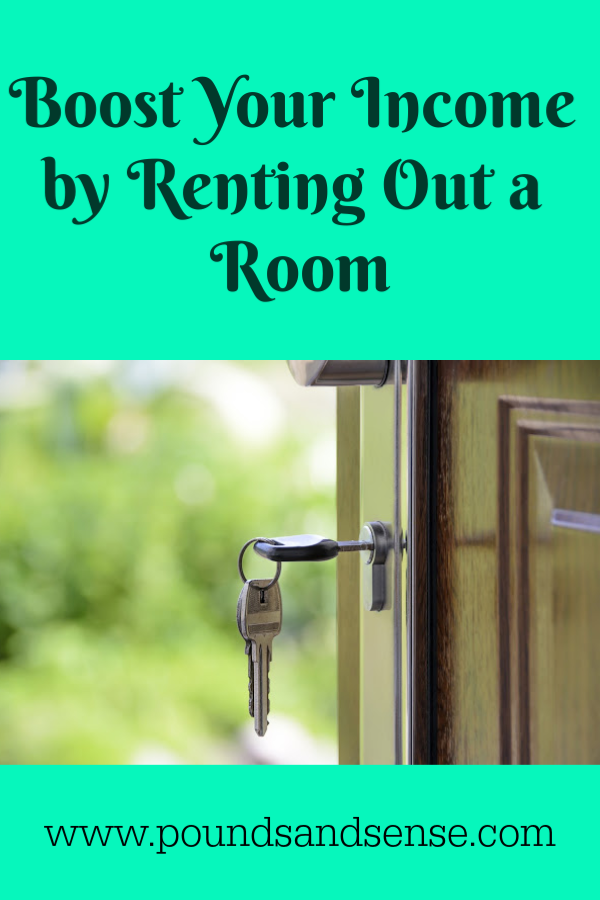Boost Your Income by Renting Out a Room
Today I’m featuring an ‘old school’ money-making method that nonetheless can be lucrative if it suits your personal circumstances.
There is nothing complicated about this opportunity – it simply involves renting out a room (or more) in your home, either long-term or short-term.
There’s a long-running government scheme to encourage home-owners to do this. It’s called the Rent a Room Scheme. Until April 2016 you were allowed to earn up to £4,250 a year doing this. But in that year’s budget this limit was unexpectedly raised to an even more generous £7,500, which still applies now.
The Rent a Room Scheme
Anyone with space in their own home is allowed to use the scheme. You can let a single room or an entire floor.
You don’t even have to be the home-owner yourself. If you’re a tenant, you can sub-let a room, as long as your own lease allows you to do this.
There are some restrictions to the scheme, though. Most importantly, the accommodation must be furnished and it must be within your main residence. And you can’t claim under the scheme for self-contained flats even if they are in your own home.
If your gross rental income is under the £7,500 annual limit you don’t have to take any other action and can keep all of the money tax-free. You don’t even have to tell the taxman unless you fill in a self-assessment form already (in that case you’ll need to enter the rental income on your return but won’t have to pay any tax on it).
One important thing to note is that the £7,500 a year tax-free allowance is for total rental income. You aren’t allowed to deduct any expenses from this, e.g. repairs or redecoration.
If you earn over £7,500 a year from renting you have two choices. One is that you can keep the first £7,500 tax tree under the Rent a Room scheme and pay tax at your highest marginal rate on the balance above this (that’s 20% for standard rate taxpayers). This will probably be the best option for most people letting rooms at home.
Alternatively, you can opt out of the scheme altogether. In that case you will be treated like any other small business. You will be taxed on your entire rental income, but allowed to deduct all reasonable expenses before tax is charged on what is left. This will be advantageous if you have major expenses to cover. You can choose which option will be best for you each year, so it’s important to keep detailed financial records. More information can be found at https://www.gov.uk/rent-room-in-your-home.
Short Term Letting
If you don’t want a permanent – or semi-permanent – lodger, another option that has become hugely popular in recent years is short-term letting to budget travellers and people who prefer a more personal alternative to hotels.
At the forefront of this trend has been Airbnb. This site lets you offer anything from a sofa in your living room to your whole house. You can set your own rent, and decide which would-be guests you want to accept.
Airbnb charges you 3% of whatever you charge your guests (they also charge guests a fee of between 6% and 12% of whatever you charge). You get paid via Airbnb approximately 24 hours after your guest checks in.
Income from Airbnb rentals can also be claimed under the Rent a Room scheme, so long as you meet the general requirements mentioned above. This applies even if you rent out your whole house for a short period, as long as it clearly remains your main residence.
Short-term letting can obviously work well in holiday areas, but it can be done elsewhere too. For example, my sister Annie lives near Oxford and sometimes offers accommodation in her home through Airbnb to visiting academics and people coming to business meetings and conferences in the city.
There are other, similar options to Airbnb you may like to check out as well. They include HomeAway, VRBO, Couchsurfing, and more. They all operate a bit differently and offer a different range of accommodation and services (e.g. HomeAway is specifically for holiday rentals). This article on the Huffington Post site lists ten alternatives to Airbnb with basic descriptions of each one.
If you have any comments or questions on this post – or any experiences of your own to share – please do post them below.



December 3, 2018 @ 5:45 pm
Definitely a good potential earner if you have a room going spare, glad to hear the limit has been raised! =]
December 4, 2018 @ 5:24 pm
Thanks, Caz. Certainly is, if you have a spare room and don’t mind the company!